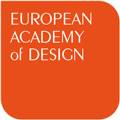TrackChairs: DR JA-JOUNG HWANG, PROF LOUISE VALENTINE, PROF NOËL PALOMO-LOVINSKI, DR BEATRICE GISCLARD
Short Abstract:
The last year has been a global shock to the system, the move from face-to-face to contactless communication and indeed living. Educators around the world unexpectedly prepared themselves to teach at a distance and many had to scramble to implement effective teaching approaches in these unprecedented circumstances. There is an opportunity here, a chance to rethink the traditional studio system for design education. The aim of this track is to explore how educators have been inspired to undertake research that rethinks the past and starts to develop a new form of design education.
Description:
Life has drastically changed from how we work, socialise, teach, and learn due to the unprecedented global situation. In design education, the studio has always been a space that allowed for experiments and explorations that facilitate learning beyond a course plan. However, over the last 12 months and beyond, designers and educators quickly needed to adopt strategies to cope with the current crises. For example, educators are rethinking the existing teaching practices and reconsidering the method of teaching instruction. Universities worldwide are putting an effort to create feasible learning spaces by rearranging classroom layout and changing classroom atmosphere suitable for online or remote learning.
The purpose of this track is to learn and share lessons from colleagues and educators worldwide so that we, educators, can prepare for a better future. We welcome research on a wide range of issues, including but not limited to; rapid transition to remote learning, struggles on producing design educational process and outcomes, and educational settings for remote instruction, better than a physical studio. This track welcomes the challenges of designing and redesigning teaching and learning strategies amid the current time of hardships; furthermore this track welcomes theoretical and empirical work from across a range of design disciplines. We welcome the work of educational theory and practices discussing the presentation of new advances and research results. We also encourage multidisciplinary perspectives of encompassing design teaching and learning approaches and examining the issues of diversity, equity, and inclusion in teaching design.


